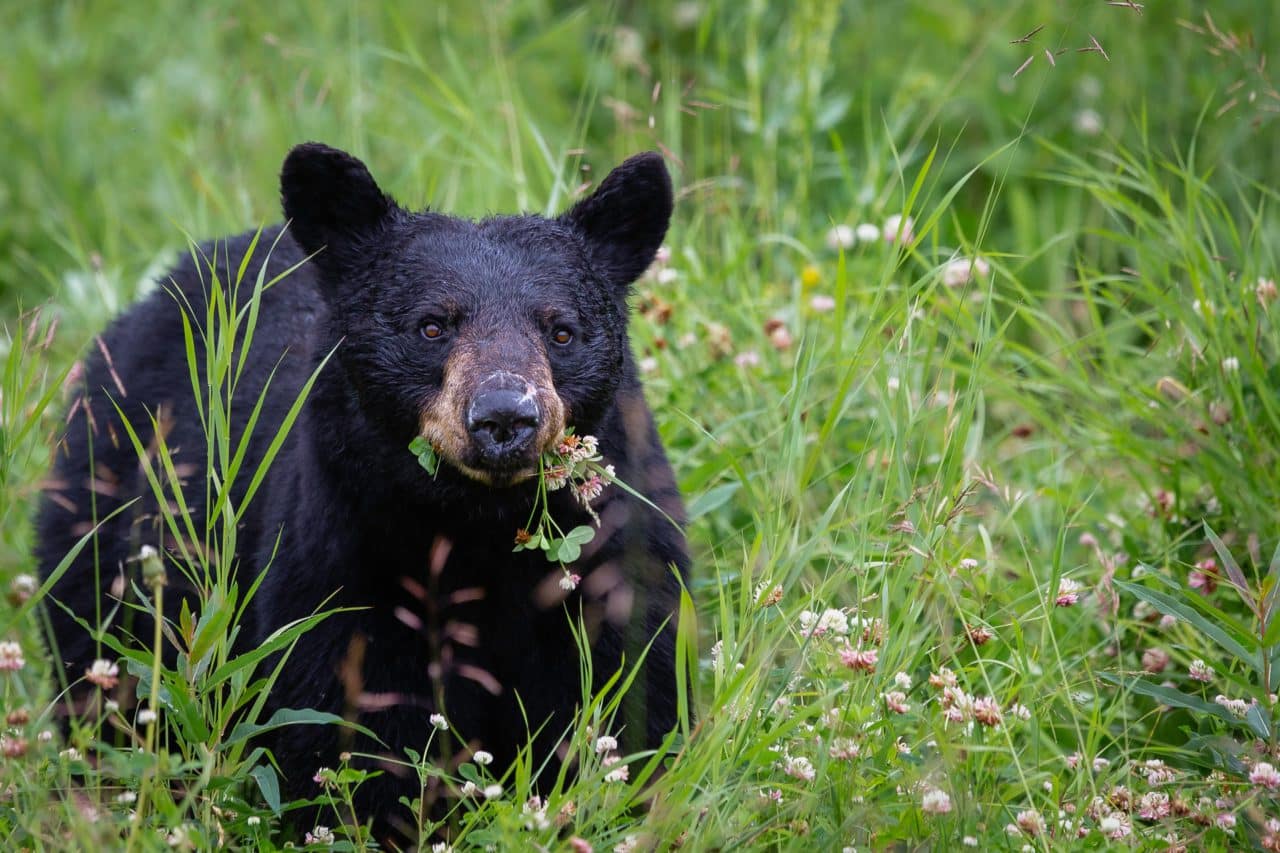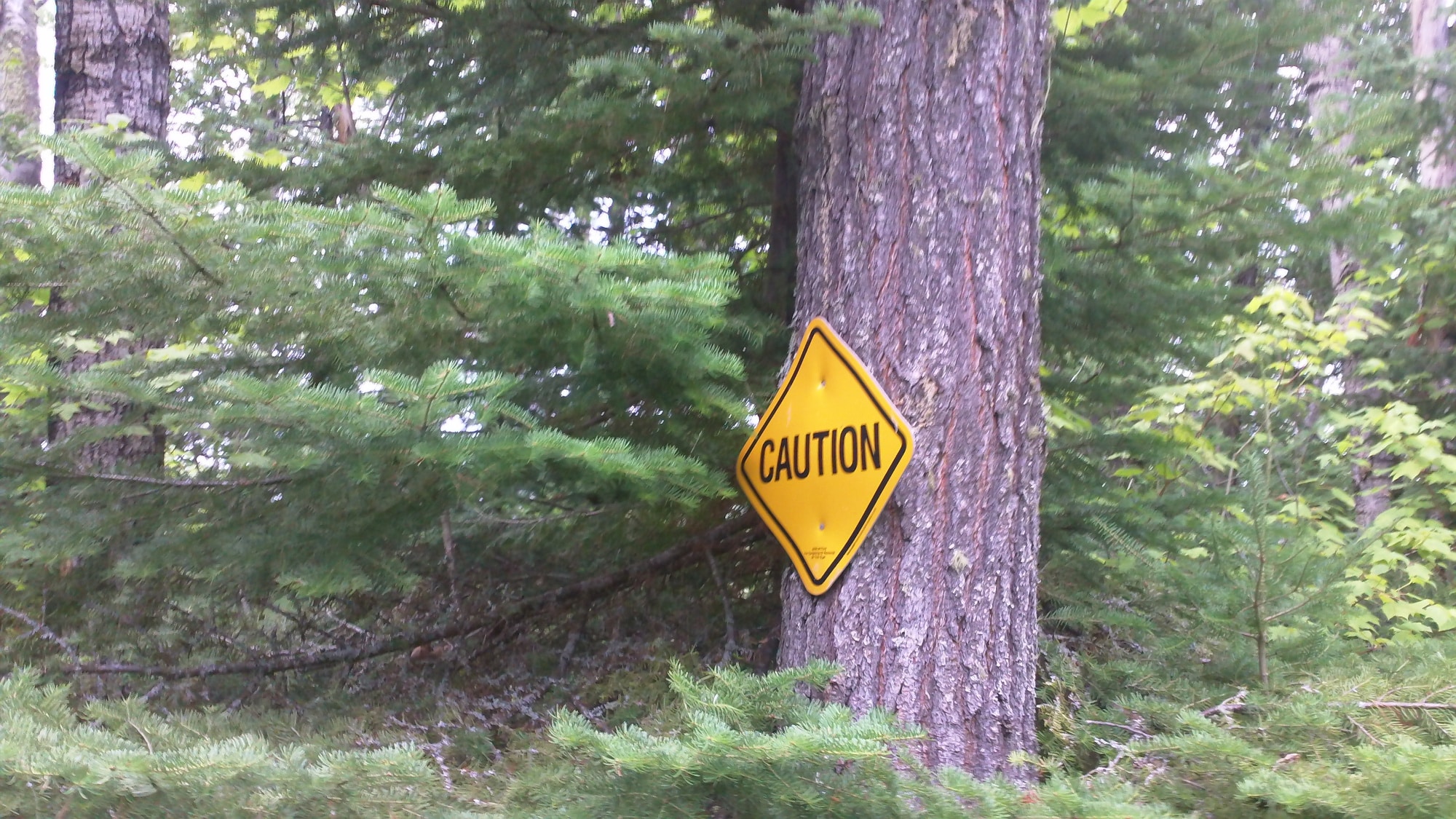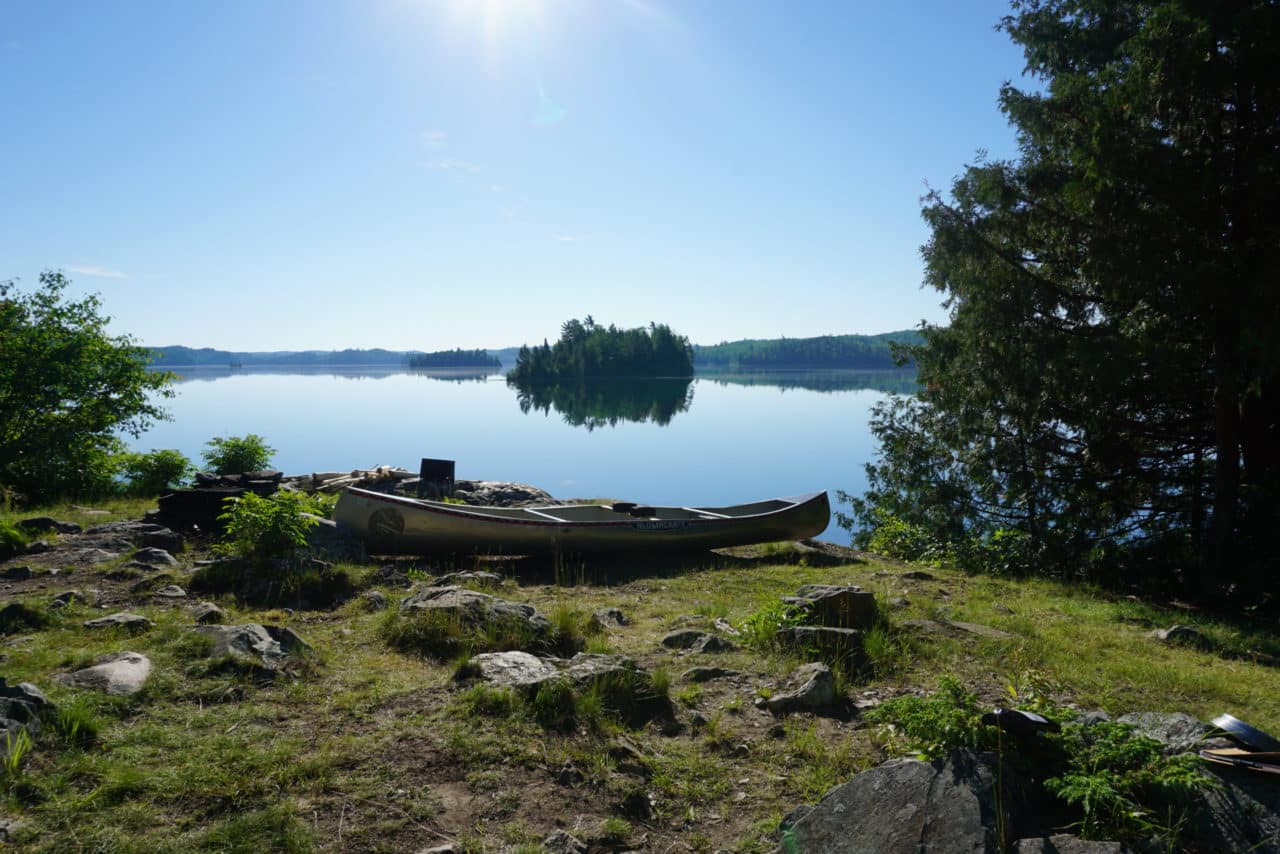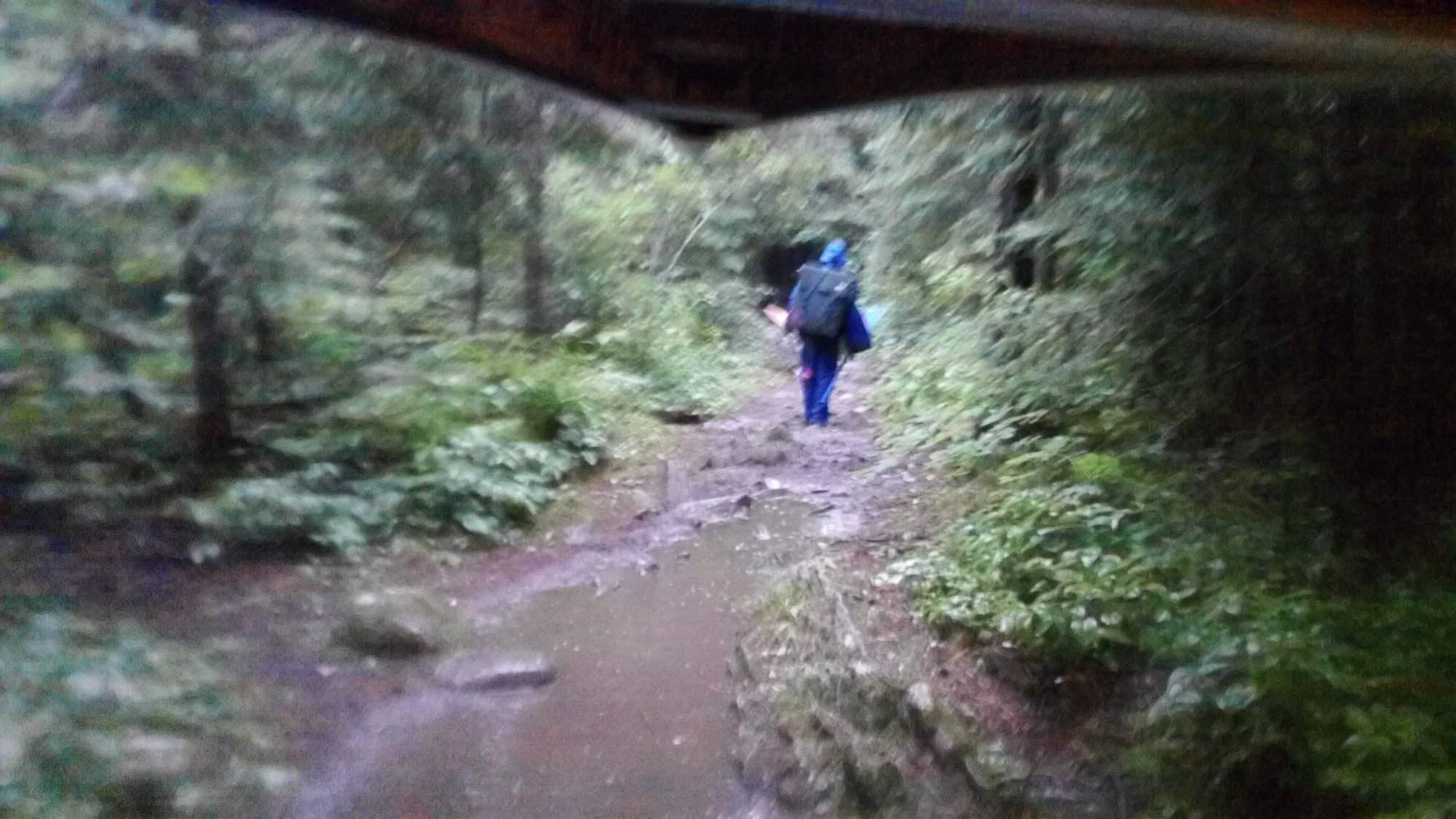When I was a canoe guide for Charles L Sommers Northern Tier High Adventure for the Boy Scouts of America, I had a fascinating first trip. The location of the canoe base was in the state of Minnesota, north of the last town, Ely, before the border of the U.S. and Canada. Just a few miles from the line between The Boundary Waters (U.S.A.) and Quetico (Canada). It’s a beautiful location and hosts one of the most visited wilderness areas in North America. It was the spot of my first and only problem black bear encounter.
Experience Of a Rookie Guide
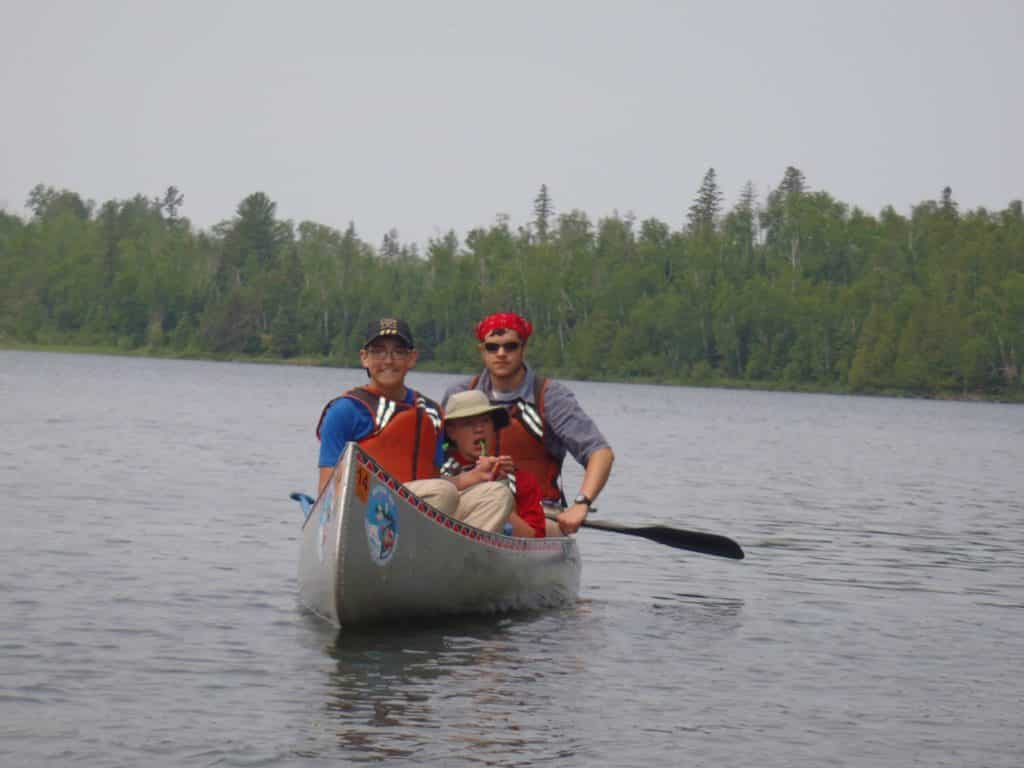
After my training as an Interpreter ( canoe guide ) ended, I was assigned my first crew—a crew from Texas signed on for a seven-day trip. On the third day on their boundary waters trip, we decided to stay in camp and explore. It was in the afternoon, and most of the crew was out on the lake fishing. I was lying in my tent reading the Hobbit when we had an unwelcome visit from one of the forest’s larger inhabitants.
The only other ones there besides myself were a parent advisor and his son. They were by the fire grate, having a snack and chatting. I was enjoying the book when suddenly I heard from the kid, rather casually he said, “Hey, look, a bear.” A second or so after I was contemplating what he said, they were yelling and banging pots. I quickly put on my socks and boots and opened up my tent. I went over to the shore, grabbed my big paddle, and walked to the two of them. I asked, where’s the bear?”
What To Do With A Black Bear Encounter
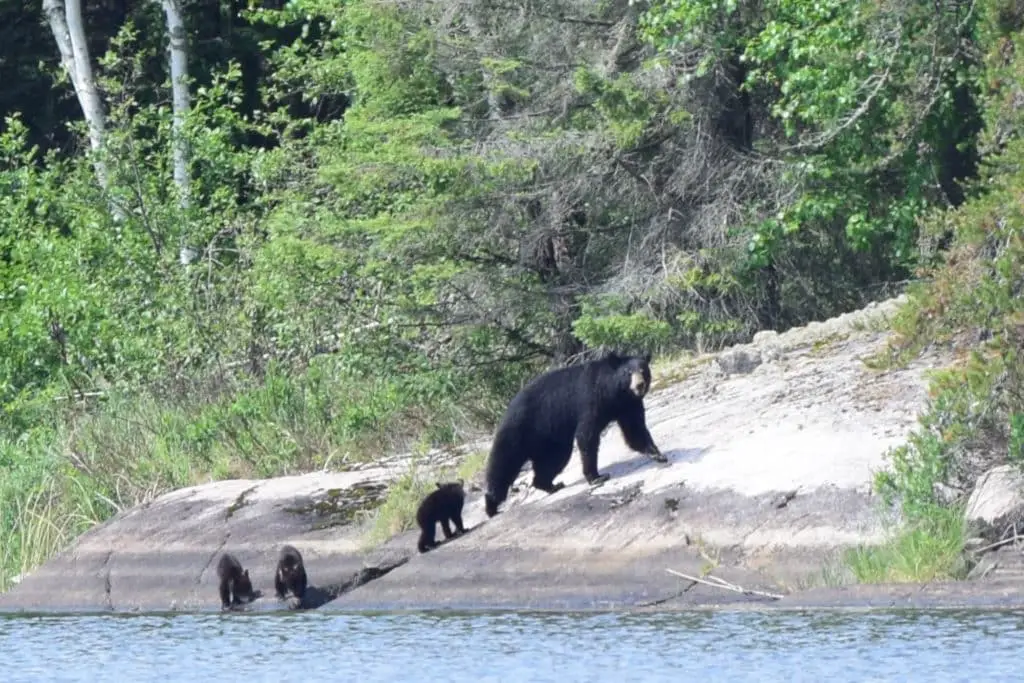
Usually, bear encounters in the BWCA are from a distance and make for good photos. However, a bear in your camp is another matter. They told me that they scared it off, but I wasn’t confident that they warded it off for good. I immediately started forming a plan. As I started talking about our options, they pointed behind me and said, “here it is!”I turned, and the bear and I locked eyes. It was a relatively big black bear, approximately five feet long and about three feet tall while on all fours. Probably just entered adulthood or at the tail end of adolescence.
I lifted my paddle with both hands over my head as far in the air as I could reach. I then pulled out something deep from inside. I released a ferocious roar, louder than I’ve ever yelled before, and began charging the black bear. Not even half a second, it went full 180 and sprinted back up a trail home to a pit toilet we call the “grumper.”
As I ran him into the brush, I stopped and continued to yell to intimidate it further. I walked around, trying to think about what to do next. Finally, the advisor said, “I’ve never heard anyone yell that loud before.” And the kid said, “you definitely scared it off!” But I knew the truth. This bear wasn’t going to give up easily.
Getting A Problem Black Bear Off The Island
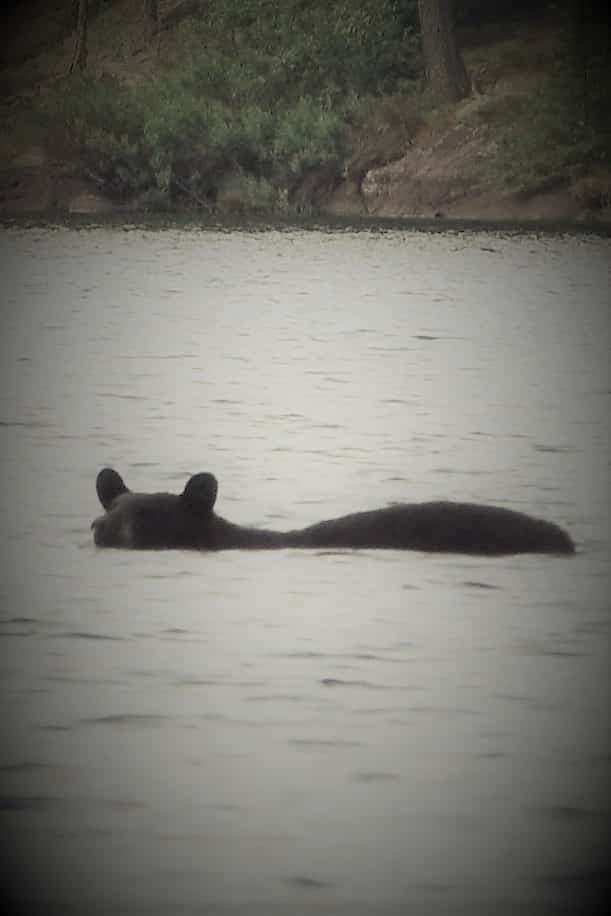
Soon the rest of the crew came back to the camp. They had caught some decent-sized walleye. I thought, “great, more smelly food for the bear to smell.”I caught up with those of our crew who had returned from fishing and updated them about what happened while they were gone. I told everyone that what we were dealing with was a “problem bear.”
A problem black bear encounter is a bear that was exposed to human food by reckless campers either leaving food around camp or not correctly hanging a food storage container high in a tree called a bear bag. Once a bear has eaten human food, it ruins its natural diet, and human food becomes its primary source of nourishment. So it will relentlessly follow its nose and raid campers’ sites for its food. Fortunately, black bears are pretty easily scared by humans. As long as you aren’t trying to scare it off once it’s already eating from the source or if it’s not a mother bear with its cubs nearby, there is usually nothing to fear.
Make Noise For A Black Bear Encounter
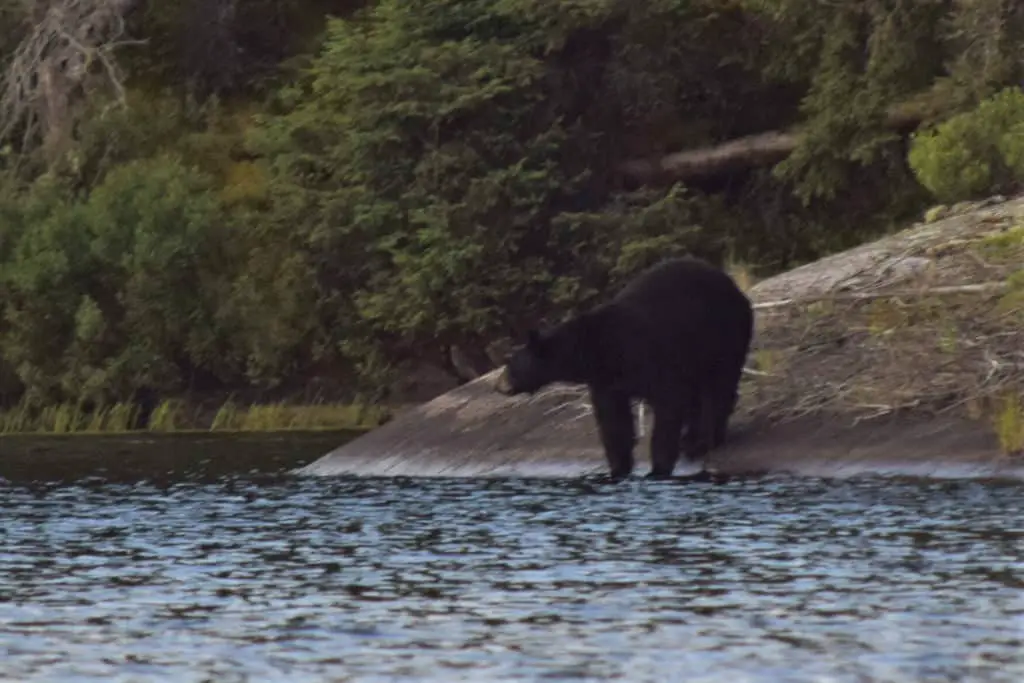
From the forest, we could hear the bear lurking in the bush. I told the crew we had two options. Either we quickly pack up camp and head to another camp; however, this wouldn’t ensure that the bear would eventually find us again. Or plan two, we scare off the bear into the lake and hopefully gone for good. Our campsite was situated at the tip of a peninsula. The bear at this point was along the west side of the peninsula, closer to the shore than the vast forest to the north.
Our next step was to create a police line. I told everyone to spread over 10 feet apart and slowly go into the bush north. Inch around to the peninsula’s west side, cutting it off the mainland and pushing it into the lake. I was one of the closest ones to the bear at this time. It was a little over fifty feet away. It was leaning against a dead tree trunk. It was standing up on its hind legs, leaning back and then thrusting forward, thrashing into the tree trunk with its claws, and using its body weight to slice down, ripping the wood into chips. It continued its show of intimidation until one of the crew members stepped on a branch. The bear heard the snap and started to run away from where the sound was coming. He was running exactly where I wanted it to go – straight into the lake. TThat’swhen I stood up and yelled, “Now!!!”
Everyone was ready for this moment. It was like a scene out of a war movie. The charge towards the enemy forces. All crew members began yelling, banging pots, even running after it in the thick brush (even though I advised against it when talking about the plan.) Finally, at the farthest west of the line, the two scouts saw the bear crash into the water and swim away from the land.
Feeling of Triumph Of Scaring Off A Bear
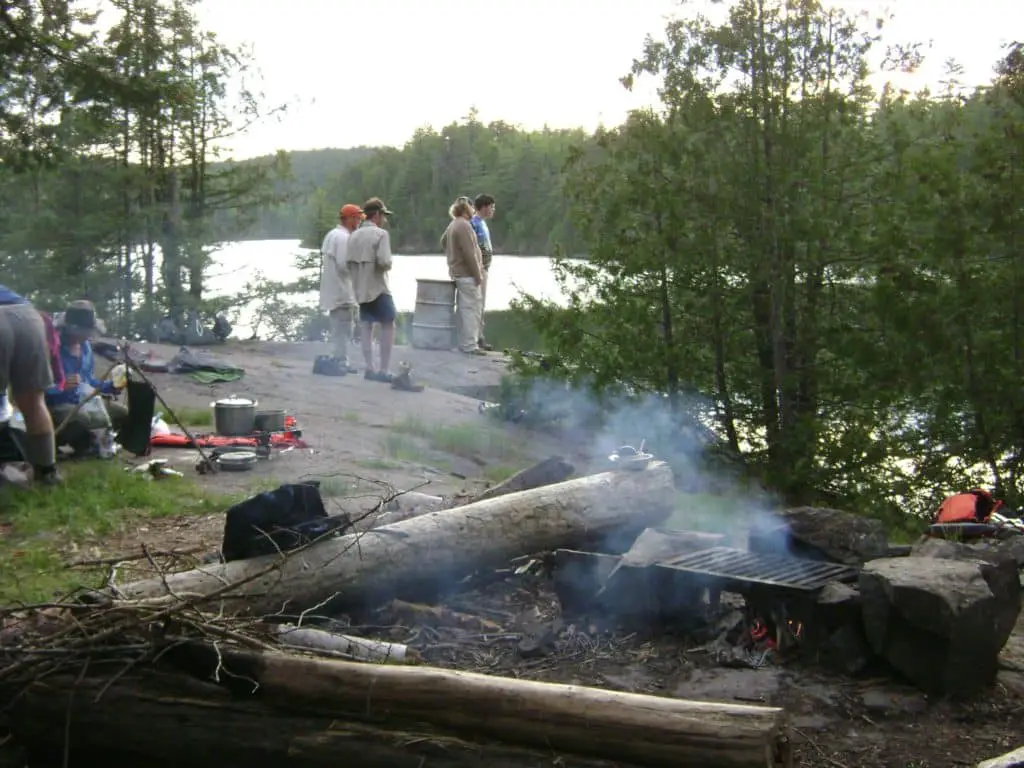
After this second encounter, we all regrouped at the camp. Some of the scouts had minor bruises and scrapes from falling trying to run in the thick forest. But they were smiling and making jokes. They were just happy that the bear was gone. The worries were over. They didn’t care about their minor injuries. Yet, I still advised them to clean their wounds and wrap them with gauze. We celebrated a well-executed plan, and an advisor and his son started to fillet the fish to fry for dinner.
Not much long after they began cleaning the fish, the two yelled to one of their closer crew members. The kid who was told came to let me know that two people were canoeing towards our camp. I went to the store to see what they were talking about. From a distance, I could not see any visible bags in their tan kevlar canoe. The pair were paddling very fast with a sense of urgency. Of course, we only had old Alumacraft canoes, which weighed a lot and weren’t as fast. But still, it was impressive to see such a humble transport glide across the water with such speed and grace.
BWCA Rangers Where Looking For This Bear
I waited for them by the shore. Once they were within talking distance, I greeted both and asked if I could help them. They were two forest rangers in full green uniforms. The tallest one with a big mustache looked at me and, with a very northern accent, said, “”e heard yelling and from across the lake. Did you guys encounter a bear?””They pulled up by the shore and carefully hopped onto land. In their canoe was what looked like an M1 Garand .30-06 like they used in WWII. Except it was painted black. It was a pretty big caliber rifle. They also both had pistols holstered to their hip.
I told them how we successfully scared the bear from the peninsula into the lake. At first, they seemed doubtful that we were able to scare off this bear. However, one of the older scouts on the crew that saw the bear swimming confirmed it. The rangers said that there had been over 13 cases of a problem bear in the area. It was raiding campsites for food for weeks. Their job was to put the beardown. We were about to show them approximately where the bear was last seen.
Other Camps Encouter the Problem Black Bear
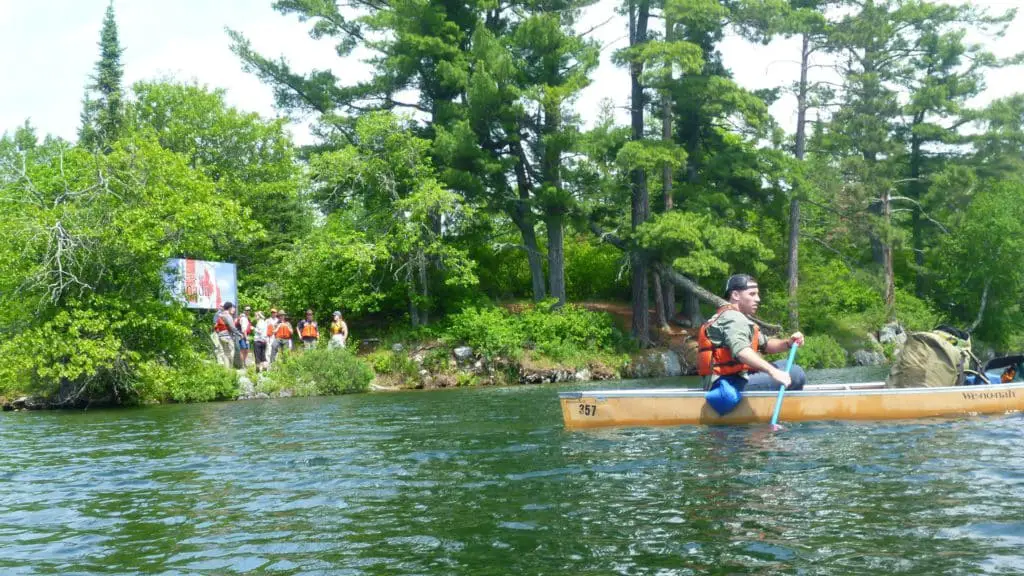
Suddenly, about a mile or so across the lake, we heard yelling and pots banging. The rangers acted very quickly. They got back in their canoe and started paddling even faster than before. It was quite a sight to see. They were stroking faster than I’ve ever seen a canoe go before.
From our vantage point, our whole crew watched this scene while we were sitting along the shore. Once they reached the camp where the noises were coming from, they went up to the campers. They spoke for a few minutes and went back into their canoe. They paddled around the shore till they were out of view. Not much longer after we lost sight of them, we heard a loud gunshot. The blast echoed across the lake until there was silence.
Sadly The Problem Was Resolved
After a few minutes, we saw the two rangers canoeing back around to the front of the camp. They talked to the campers, went back in their canoe, and headed back straight to us. When they got close enough, we could see a furry black figure in the middle of the canoe. It was the black bear. They got it with one shot. I waited by the shore for them.
Once they were close enough to speak, they told us that we should continue to hang the bear bag. Just because they took out one bear, they advised staying aware of more bears. They told us how it was possible that it might not be the same bear. The crew thanked the rangers, wished them a good night, and they were on their way.
Retelling the Tale And Learning a Lession
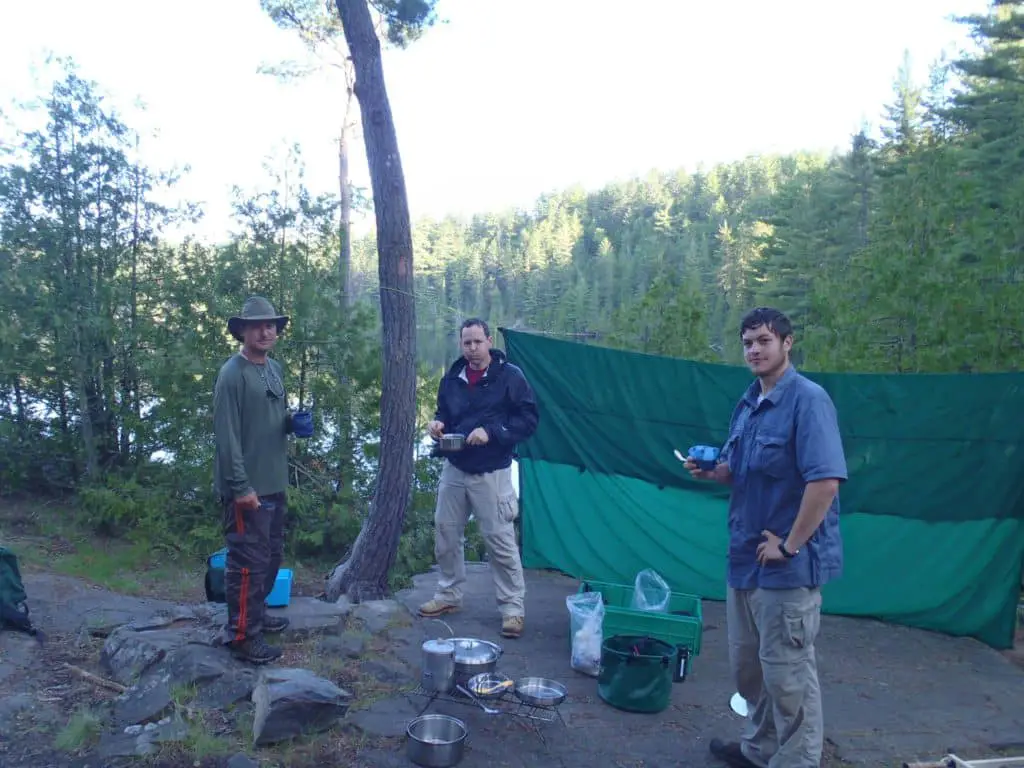
Later that night, around a small fire, we all expressed how relieved we would no longer be terrorized by the hungry beast. But I made sure to make an important lesson out of this bear encounter. I told the crew that this encounter was an unfortunate event and was entirely preventable. If it weren’t for negligent campers, the bear would never have eaten human food, and have its whole natural life would still be ahead of him. But because of a few irresponsible people, this young adult bear was dead.
This incident is why we stress the importance of L.N.T. Leave no trace. We must respect nature and its inhabitants. Take pictures and leave behind only footprints and waves. If humans continue to directly and indirectly negatively affect nature, then there will be no nature to go out and explore. No wildlife to wonder at. No beauty to lose yourself to. There are no problem bears, only problem humans. After my speech, we said goodnight to each other and all went to bed.
Rangers Fly Out of The Wilderness
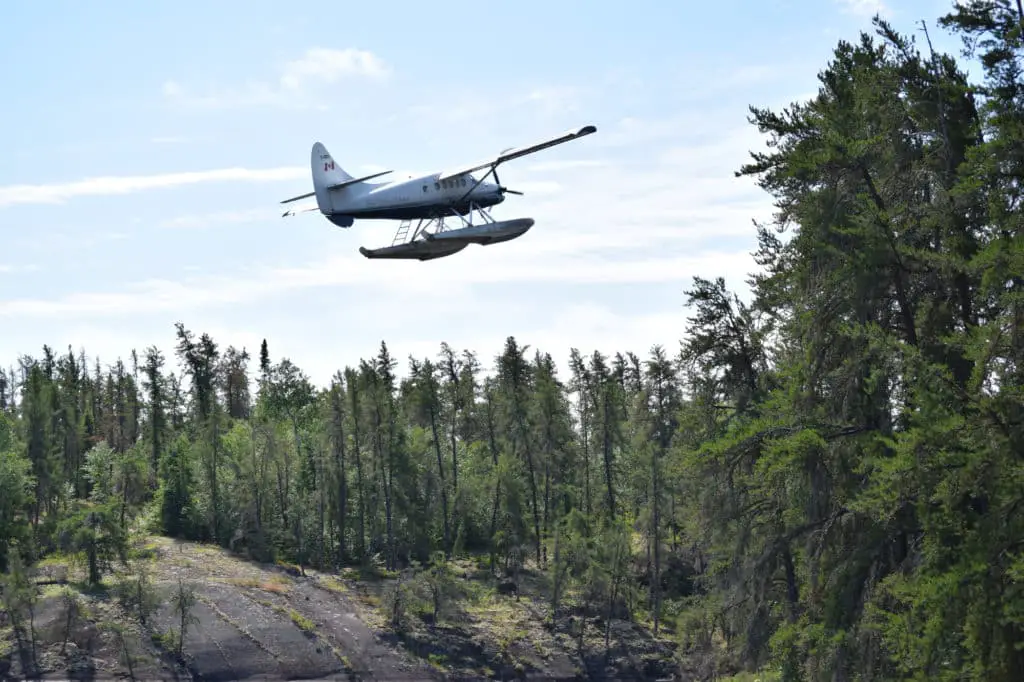
We all slept well. After we ate breakfast, cleaned, and packed up camp in the morning, we paddled by the island the rangers were camped out. After we passed the island, we saw a floatplane in the distance. It was the ranger’s ride. I could tell because their tan lightweight canoe was attached to one side.
We continued to paddle, and the floatplane took off into the air parallel to our path. We were all waving and shouting as it was pretty exciting to see a float plane go airborne so close. The rest of the trip went very well and without any more bear encounters. Once back at Northern Tier, the crew rejoiced in the experience, told tales of our days on the water, and enjoyed our last night together.
The next day before they left, they thanked me for my services and that they will never forget their time in the Boundary Waters and our triumph over that black bear. IIt’ssafe to say they got a kick out of their trip, but I dare say they also learned a thing or two and walked away with a new perspective on life. I did too. Not bad for the first crew, I thought to myself. I told my co-workers of my trip, and everyone patted me on the back.
Back At Northern Tier The Impact Sinks In
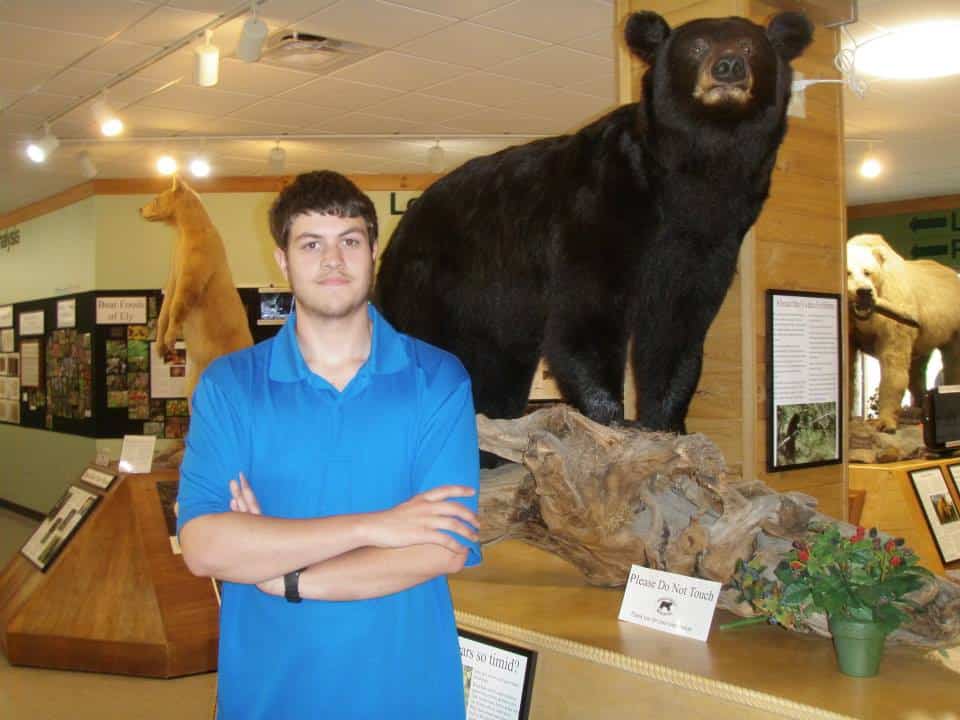
There was unanimous agreement from all the interpreters that I handled it exactly how they would have. The National Park Service has some tips on what to do if you encounter a black bear. That wasn’t the last time I encountered a black bear out on a trip. But thankfully, that was the last time I met a problem bear. I still think about that bear from time to time. I didn’t want to have to scare it or drive it away. It wasn’t its fault. He was just one of a long line of unfortunate outcomes due to careless humans. I learned a lot from that bear.
The last thing I took away from the encounter was life is short. It can end without any real good reason, and it might not have anything to do with you. So you must treasure the time you have in this world. Learn from the mistakes, and teach your lessons whenever you can. For you never know. Your lasting impact could help shape things for the better of everyone, even if it’s just to save a bear.
